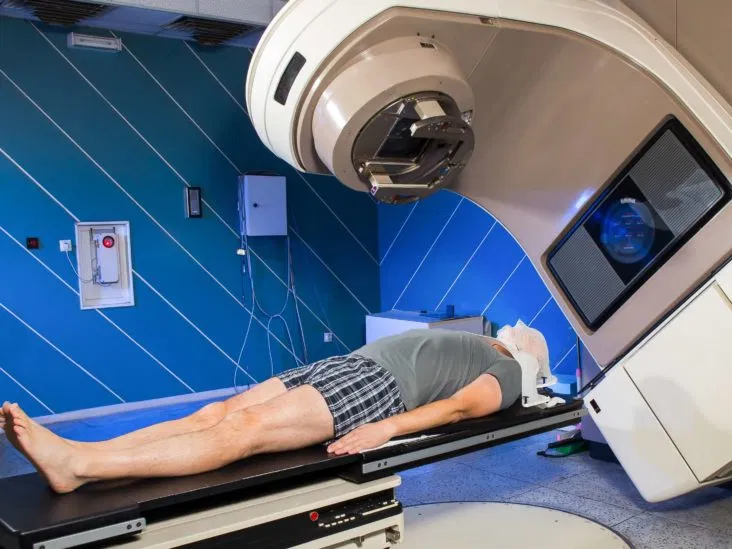Radiation oncology is a vital medical treatment utilized in the cancer therapy and care field. This blog post will examine radiation oncology treatment in detail, including its definition and how it functions. Moreover, the various technologies and methods employed in radiation oncology will be discussed, as well as the advantages of this treatment. After reading this post, you will have a better comprehension of radiation oncology and its benefits to cancer patients.
To Gain a Deeper Understanding: Dr. Michael Dattoli
What is Radiation Oncology?
Radiation oncology is a complex field of medicine that requires expertise and experience. It is used to treat cancer and other diseases with radiation therapy – a type of external beam radiation therapy. This therapy destroys cancerous cells or shrinks tumors while minimizing the risk of damage to healthy tissues. Radiation oncology has many advantages such as shrinking tumors, reducing the spread of cancer cells, and eliminating cancerous cells altogether. However, it also comes with risks such as skin irritation, fatigue, and potential long-term complications.
When considering radiation oncology treatments for a patient’s condition or disease, it is important to consult an experienced professional, such as a radiation therapist or oncologist, first. These qualified professionals can explain the procedure in detail and answer any questions that patients may have about the treatment process. Radiation therapists are responsible for delivering radiation treatments safely and monitoring the patient’s progress throughout treatment, while also managing any side effects that may occur.
Radiation oncologists are specialized doctors who consult with radiation therapists and provide guidance in the treatment process. They will assess a patient’s medical history before recommending any type of radiotherapy plan to ensure maximum success while minimizing side effects associated with each individual case. Choosing an experienced doctor with prior success treating similar cases, as well as an up-to-date radiotherapy center with equipment that meets safety standards, guarantees patients receive optimal care without compromising safety standards during treatment sessions.
Understanding Radiation Oncology Therapy and its Benefits
Oncology Therapy uses high-energy radiation to kill cancer cells and can be an effective cancer treatment option for breast, lung, prostate, and brain cancers. This therapy targets specific areas in the body with precision, damaging cancer cell DNA which eventually leads to their death. While there are potential risks associated with this type of therapy, such as fatigue, skin irritation, and organ damage, it also offers several potential benefits, including shrinking tumors, reducing pain, improving quality of life, and increasing survival rates. Before beginning treatment, your doctor will discuss the potential risks and benefits with you. During treatment, you will lie down on a table while machines move around targeting different parts of your body. Alternative treatments may include surgery or chemotherapy, but should be discussed with your doctor before making a decision.
How Does Radiation Oncology Work?
Radiation Oncology is a specialized form of cancer treatment that uses high-energy radiation to reduce the size and eliminate tumors. It can be used in combination with other treatments such as surgery, chemotherapy, hormones, or targeted therapy. The dose of radiation and number of sessions needed depend on the type and stage of the cancer being treated. To ensure accuracy while targeting specific areas within a patient’s body, imaging techniques such as CT scans or MRI scans are used to precisely pinpoint the area where the tumor exists so that only those cells are affected by the radiation beam.
Radiation therapy has been shown to be effective in treating many types of cancers including breast, lung, prostate cancers among others depending on individual cases’ severity levels. Patients should discuss any potential side effects with their doctor before beginning treatment as some may require additional medications before starting their course of radiotherapy sessions. The side effects vary depending on type and stage, but can include fatigue due to lack of energy during and post-radiotherapy sessions, skin irritation (burns), hair loss, inflammation at site area, and nausea. Some patients may experience long-term side effects months after completing radiotherapy, which could include changes in blood count levels, lymphedema (swelling) near the irradiated area, and impaired organ function. Patients must monitor these symptoms closely with their doctor since they can indicate further medical attention needed.
Regular checkups help ensure proper dosage and safety measures taken when receiving radiotherapy since it’s essential for successful results without causing further harm through over-exposure. Depending upon individual needs, doctors may modify dosage received throughout each session according to the patient’s progress against disease spread, which requires comprehensive planning between the medical team and the patient themselves.
Alternatives exist, like immunotherapies, hormone therapies, or targeted therapies, which target specific areas within the body affected by disease spread. However, these options must be discussed thoroughly between the medical team and the patient due to its complexity level when compared against traditional methods like surgery or chemotherapies.
After completing your coursework, rest assured there are ways you can recover faster from radiation therapy. For instance, eating healthy foods rich in antioxidants, getting enough sleep (eight-hour minimum per day), and light exercise activities like yoga or walking outdoors (if possible) can help improve mood states while reducing anxiety levels experienced during the recovery period, helping you get back up stronger than ever!
Benefits and Risks of Radiation for Cancer Treatment
Radiation oncology is a specialized branch of cancer treatment that utilizes radiation to kill cancer cells or slow their growth. While it can be a powerful tool when correctly used, it also comes with benefits and risks. In this section, we will discuss the risks and benefits of radiation oncology treatments, as well as the steps medical professionals take to ensure safe use of radiation therapy for cancer patients.
Radiation therapy targets cancer cells with radiation while minimizing damage to surrounding healthy tissue. Mayo Clinic’s radiation oncology professionals personalize the treatment to the patient’s individual needs, based on the areas identified to be treated. Comprehensive cancer centers offer radiation oncology services with other medical treatments for cancer patients.
Using radiation therapy has its primary benefit in its effectiveness in treating certain types of cancers, particularly tumors that may not respond well to other treatments such as chemotherapy or immunotherapy. Radiation therapy may also be used before, during, or after surgery, or in combination with other treatments depending on the individual case and desired outcomes.
Read More New Info: Radiation Oncology for Sarcoma-Treatment Options
However, risks also come with this type of treatment. Side effects such as fatigue, nausea, and skin irritation where the beam was directed at during treatment sessions can occur, lasting anywhere from a few days to several weeks. Before starting treatment, discussing any possible concerns about side effects with your doctor is crucial, so you understand what symptoms may occur and how to best manage them during your course of care.
At Mayo Clinic, our team takes extra precautions when administering any kind of medical procedures, including Radiation Oncology Treatment. Strict guidelines are followed according to safety protocols set forth by our team members who received specialized training in this field. We aim to preserve all patients’ rights throughout their course of care journey at our institution, whether they choose us for just one appointment visit or continue to receive ongoing support from us for months/years following the initial diagnosis stage till the completion/finalization point. We want you to learn about all the different options available and explore them further before making final decisions about the choice(s) made, including other forms of alternative therapies. The information gathered here could potentially help you make the most informed decisions possible based on the current knowledge base given the situation presented.
To Conclude
Radiation oncology is an important consideration for cancer treatment. With proper consultation and guidance from qualified radiation therapists or oncologists, patients can receive the most effective radiotherapy plan for their individual case while minimizing potential risks associated with treatment. Radiation therapy has been proven to be highly effective in treating many types of cancer, including breast, lung, and prostate cancers. However, patients should discuss potential risks with their doctor before beginning treatment to understand any side effects that may occur during care. By understanding all the facts about radiation oncology treatments, you can make an informed decision about whether it is the right choice for you or your loved ones.



